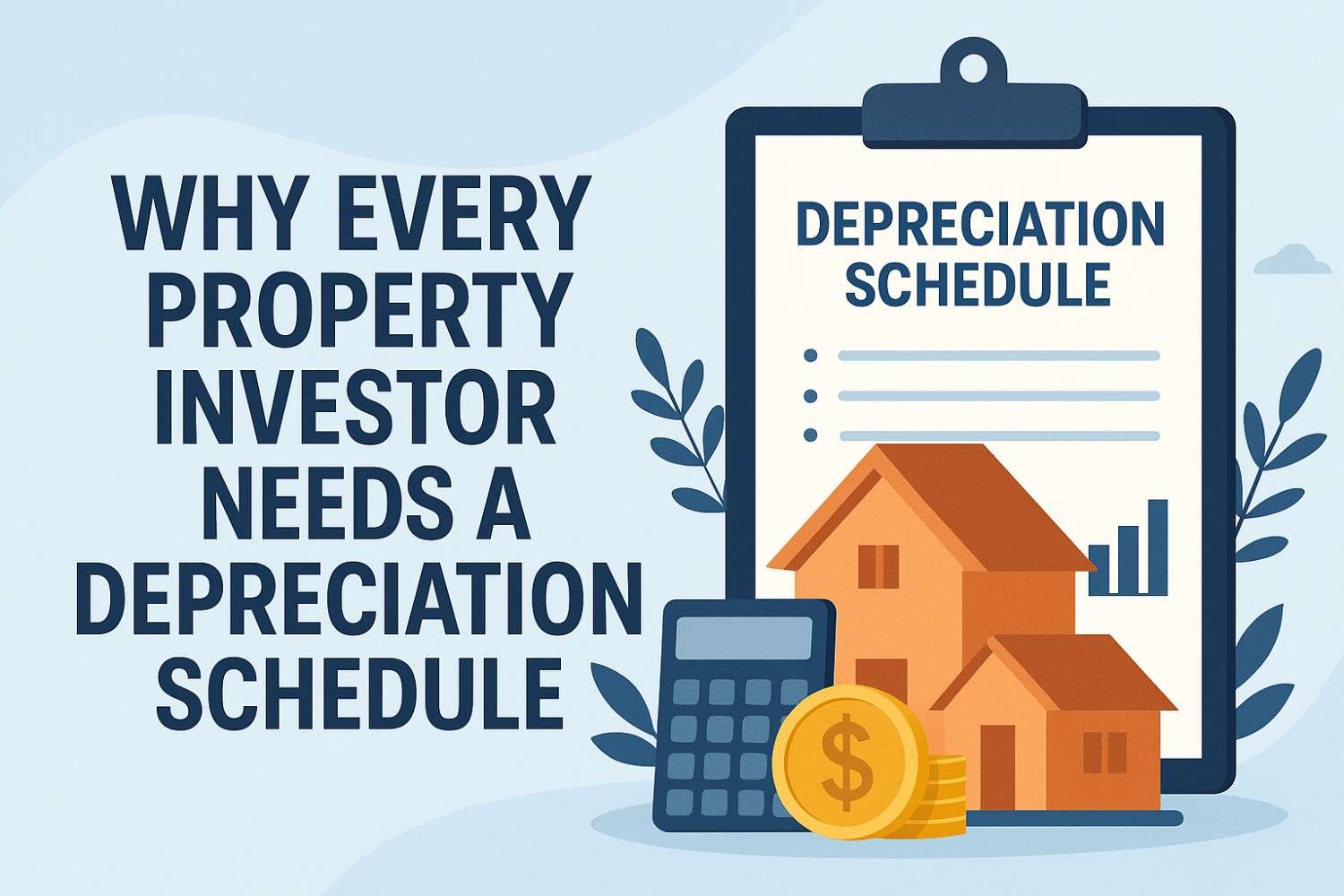Property investment offers a reliable way to build wealth over time. Many investors focus on rental income and property growth, but one key element can boost returns further. A depreciation schedule is an essential document that helps investors claim tax deductions on the wear and tear of their property and its assets.
An Investment property depreciation schedule sets out how much value a property and its fixtures lose over time. It ensures that every eligible deduction is included in the investor’s tax return. With proper documentation, investors can claim these deductions confidently and strengthen their property portfolio without additional effort.
The Concept of Depreciation in Real Estate
Depreciation in real estate refers to the natural reduction in value of a property and its contents over several years. Buildings, fittings, and fixtures age, but this gradual loss of value can be used to lower taxable income. The law recognises that investment properties experience wear over time, so investors can claim this as a valid deduction.
Understanding this process helps investors use property depreciation effectively. When applied correctly, it can improve financial performance and maintain steady profits. It is a structured way to manage property expenses while complying with tax regulations.

Maximising Tax Deductions Through a Depreciation Schedule
A depreciation schedule offers a clear method for identifying and claiming property deductions. It ensures every part of the property contributes to financial efficiency.
- Building structure: Includes long-term deductions for walls, roofs, and foundations that wear down over decades.
- Plant and equipment: Covers assets such as stoves, carpets, blinds, and hot water systems that lose value faster.
- Effective life: Defines how long each asset remains claimable under tax guidelines.
- Capital allowance: Allows claims on construction costs, improving annual tax returns.
The Role of Quantity Surveyors in Preparing Schedules
Qualified quantity surveyors play a crucial role in preparing accurate depreciation schedules. They inspect the property, calculate construction costs, and determine the life span of each asset. Their technical knowledge ensures that every item is valued correctly according to tax standards.
Professional input also protects investors from errors in reporting. A well-prepared schedule can stand up to scrutiny during tax reviews. It also adds peace of mind that every deduction is legitimate and properly supported by evidence.

Benefits Beyond Tax Savings
A depreciation schedule provides benefits that extend beyond tax deductions. It helps investors plan, assess, and manage their properties more effectively.
- Asset tracking: Offers a clear record of each item’s value, helping with future maintenance and replacement planning.
- Budget forecasting: Supports precise estimates for repairs or upgrades without financial surprises.
- Financial clarity: Gives investors a better picture of property performance and expenses.
- Strategic decisions: Helps identify the best time to refurbish or replace depreciated items.
The Importance of Timing and Updates
Timing affects how much an investor can claim. A depreciation schedule should be arranged as soon as a property becomes income-producing. The earlier it is prepared, the quicker investors can benefit from available deductions.

Schedules must also be updated when new assets or renovations occur. A revised report captures additional claims and ensures compliance with tax changes. This practice helps maintain maximum value over the life of the investment.
A depreciation schedule is a vital tool for any property investor seeking better returns. The Investment property depreciation schedule transforms the natural loss of value into tax deductions that support long-term financial success. It ensures compliance, enhances cash flow, and encourages more informed investment planning. For any investor aiming to optimise performance, this document is a key part of a strong and sustainable property strategy.






